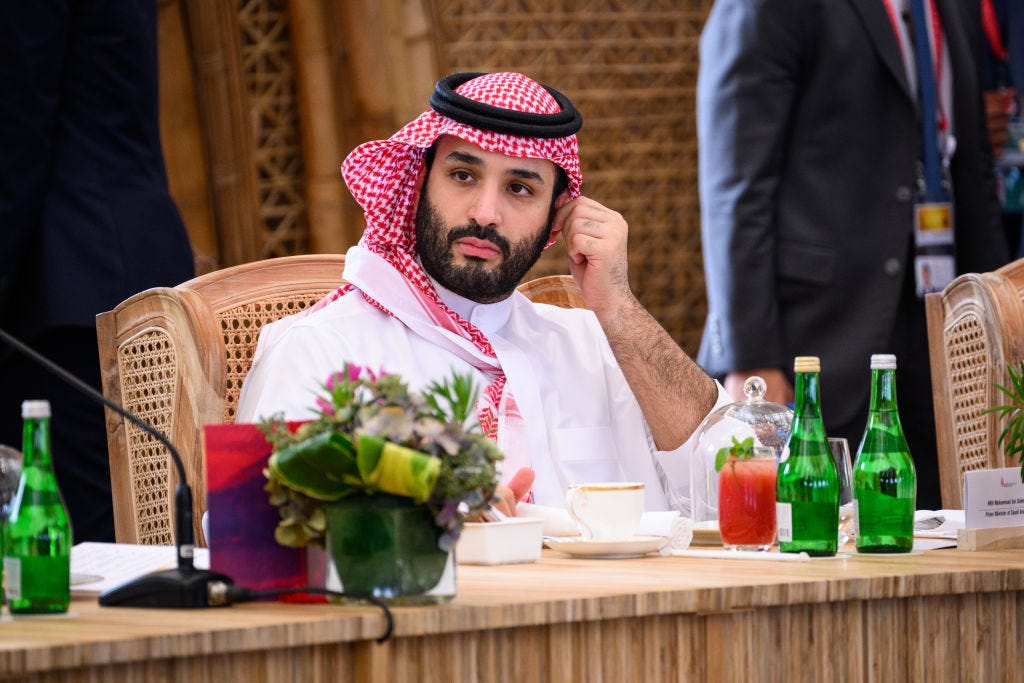Uniting States
“An eye for an eye only ends up making the whole world blind.” – Mahatma Gandhi
Saudi Arabia is, right now, executing an audacious plan to build an entire city from scratch on the coast of the Red Sea. Branded “the world’s most ambitious regenerative tourism destination,” the Red Sea Project has been under construction since 2019 and has a target completion date of 2030. The blueprint calls for numerous ultra-luxurious hotels, a state-of-the-art international airport, an 18-hole championship golf course, and every associated amenity wealthy globetrotters might want to enjoy their dream vacations — all where nothing but desert existed before.
The Red Sea Project is just one of several so-called “megaprojects” that are collectively managed under the umbrella of Crown Prince Mohammad bin Salman (MBS)’s “Saudi Vision 2030,” a grand plan to “to reduce Saudi Arabia's dependence on oil, diversify its economy, and develop public service sectors such as health, education, infrastructure, recreation, and tourism.” The country expects to invest several trillion dollars across these initiatives, money that must necessarily come from profits generated by its oil and gas sector. MBS has been clear with his intention to implement a “Saudi First” economic policy and will be managing his country’s abundant energy resources accordingly.
Of course, if Saudi Arabia “First” is only a recent phenomenon, it begs the question of which nation used to be so, and how might it feel about being removed from that all-important pole position. With the surprise cut to oil production announced by OPEC+ two weeks ago, the obvious answer to this line of uncomfortable inquiry emerges. We turn to the Financial Times for details as to what’s going on behind the scenes (emphasis added throughout):
“The surprise cuts risk reigniting disputes between Riyadh and the US, which last year pushed for the kingdom to pump more oil in a bid to tame rampant inflation amid a surge in energy costs.
The White House in October accused Saudi Arabia of effectively siding with Russia, despite Moscow’s full-scale invasion of Ukraine and its attempt to create an energy crisis by slashing gas supplies to Europe, when Opec+ last announced a formal production cut of 2mn b/d.
People familiar with Saudi Arabia’s thinking say Riyadh was irritated last week that the Biden administration publicly ruled out new crude purchases to replenish a strategic stockpile that had been drained last year as the White House battled to tame inflation.”
The personal animosity between MBS and US President Joe Biden has been widely known for some time. However, many energy market participants are nonetheless underestimating the prospect of a true and lasting rupture in the relationship between the world’s dominant military superpower and its global swing producer of oil. In recent weeks, a number of curious headlines crossed that wire that fit a pattern consistent with that very real possibility. Let’s connect a few dots.



